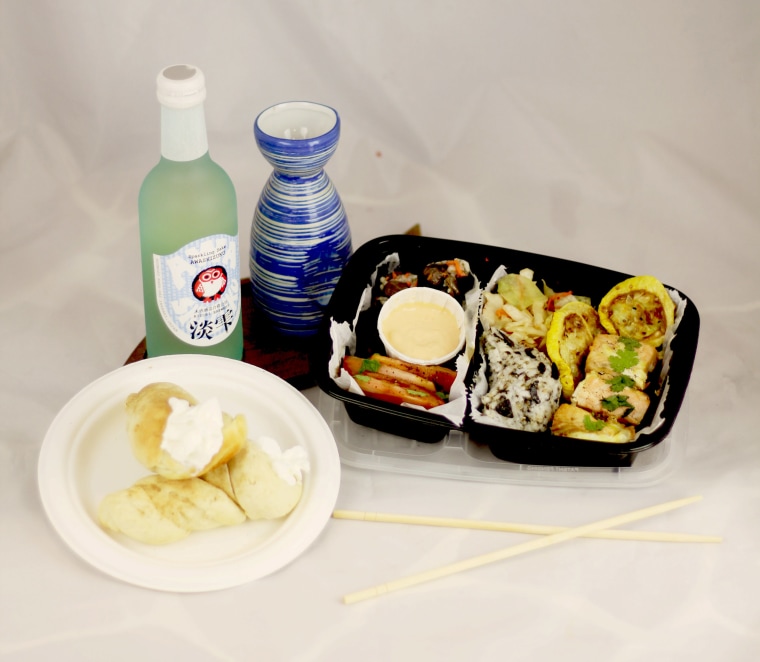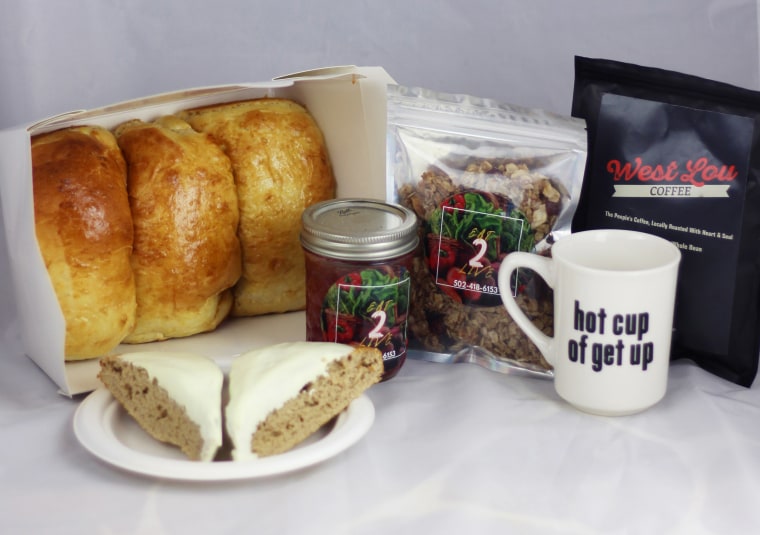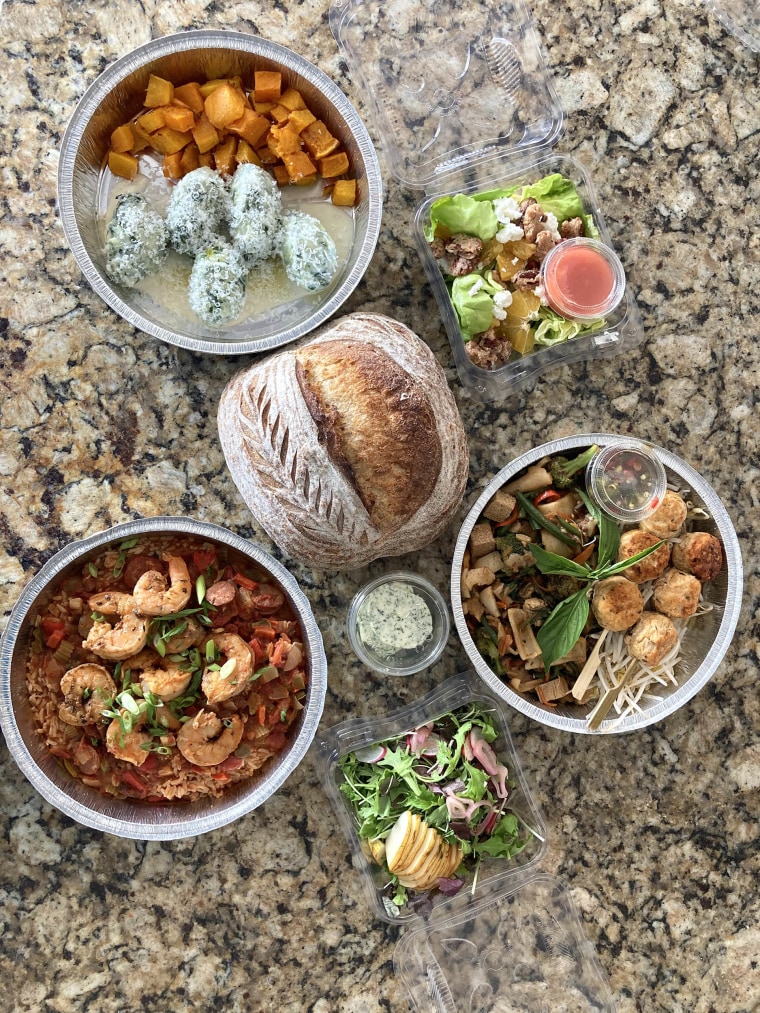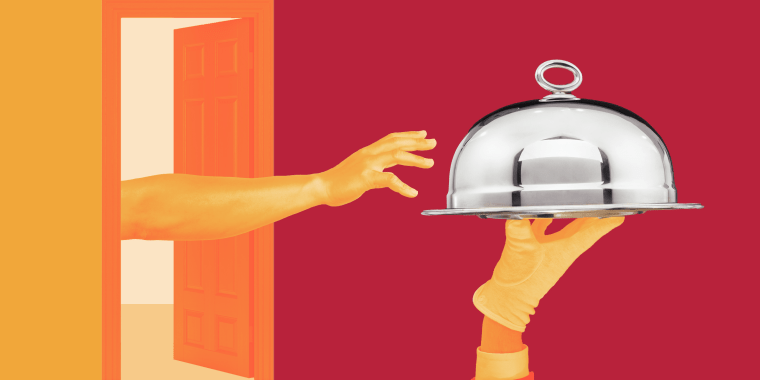We’ve become a subscription nation, with membership fueling everything from our music and media to our wardrobes, cleaning supplies and toiletries.
So it should come as no surprise that one of the most impactful pivots the restaurant industry has made in the wake of the pandemic taps into that behavior, according to Sam Bernstein, founder of Table22, a company that helps restaurants build customer membership models and add revenue streams from meal kits, experiences, content and more.
In fact, in hindsight, of course we’re willing and eager to sign up for regular delivery or takeout, meal kits and more from our favorite restaurants. We, the dining public, miss engaging with the places we love, and creative new offerings from restaurants and bars rolling out subscriptions provide a way to support them and stay connected.
I signed up for one such example with a bar/cafe in my hometown of Louisville, Kentucky. Based on the unorthodox wine pairing book “Big Macs & Burgundy” by Vanessa Price, the $25 subscription from Limbo Bar/Riot Cafe features a pairing from the book with one bottle from their cafe’s bodega and a food made in their kitchen. And that’s just one among their unique offerings, which also includes the Black-owned Bodega Bundle. This monthly goodie bundle featuring all Black food and beverage entrepreneurs and chefs includes treats like wine, salsa, jam, hot sauce, and dessert. In a city that rose up in the wake of the Breonna Taylor case, the subscription is a tangible way to support Black owned businesses as well as the small, independent business offering the subscription itself.
While their $20 a week rum club is their most popular subscription, owner Olivia Griffin said, fans can also opt for a mocktail, beer, or sake club, and weekly or monthly breakfast bundles. Griffin is also experimenting with a keto meal kit that’s been popular since the beginning of the year.

Although she may not profit hugely on any individual selection, Griffin said, “unless I get a lot more subscriptions … that's kind of how subscriptions work, you're trying to go for volume,” the work “creates hours on otherwise slow days.” She sends out rum club and keto subscriptions on one of their slowest days “so it's a great time for the kitchen and the bar staff to prep a bunch of stuff to go out, then I get to hire delivery drivers who maybe need to make some extra cash so it all around kind of creates jobs.”
Restaurants are kind of imbuing [subscriptions] with creativity and love and they're in many ways a canvas for the restaurant to do something really meaningful.
Sam Bernstein, founder of Table22
Not everything she’s tried has taken off, but besides keeping the kitchen busy, a robust subscription line-up is “a little bit of income that I can depend on on a weekly basis.” She’s also serving not only the customers who aren’t going out during the pandemic, but she’s now reaching a new audience from other parts of town that wouldn’t typically have visited her downtown location. Plans are to definitely continue, and even expand, this area of business post-pandemic.
Some restaurateurs also see subscription services as a way to help their customers. While the healthy, chef-driven prepared meal service Wiltshire Pantry in Louisville offers is a means of making a little bit of profit, said owner Susan Hershberg — although, she noted, during the pandemic they’re doing little more than barely surviving — “we're also doing this to provide a service to our regular customers.” Some may be too busy with work and kids’ school to create healthy meals, she says, while others who are at high risk want to avoid grocery shopping as much as possible.
Like Griffin, Hershberg says their subscriptions account for around 20 percent of their earnings right now. That’s not huge, but every dime counts a year into the pandemic when “we’re down to the nitty-gritty,” she says. But the impact goes further than her own bottom line. Thanks to the regular orders, her business can keep ordering from some of their favorite local producers. In fact, she says, “that's really how it started.”

When the pandemic hit, she said, “I just thought, ‘oh my God what are these producers gonna do with this product,’ and so we literally developed our menus around what the farmers had. In the beginning it was what they had that they were going to have to throw out.” Creating the weekly menu is “a way to keep the team of chefs that I have fully engaged and doing what they do best,” she explained, “which is making delicious food and creating new menus and allowing them to experiment with many new ideas and dishes that we probably would not be able to play around with in the middle of a busy climate otherwise. It's allowed us to keep a team employed. And that also has been my priority from day one.”

With such a personal touch and so much back story, offerings like these and others around the country like the meal kits from Takoi in Detroit or chef curated tasting menus from Vimala’s Curryblossom Cafe in Chapel Hill, North Carolina, are a far cry from the “utilitarian transactional” experience Bernstein calls standard food delivery through apps like Grubhub. “Restaurants are kind of imbuing [subscriptions] with creativity and love and they're in many ways a canvas for the restaurant to do something really meaningful.”

